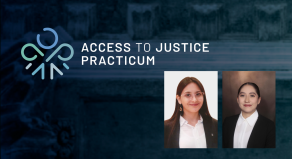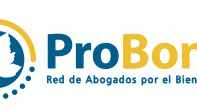In the project “Access to Justice Practicum” in Mexico, the law practitioner on issues of public interest will manage a project to promote the Manual for lawyers for addressing gender-based violence. Likewise, it will carry out a mapping of collaborative actors for the promotion, dissemination and training of the manual. Finally, training will be managed and scheduled for legal professionals who voluntarily want to serve the sector of women and girls in situations of violence to provide them with guidance and legal advice.
Why is there a need for this pro bono project in Mexico?
Gender-based violence in Mexico is a highly relevant phenomenon. According to the latest report from the National Institute of Statistics and Geography (INEGI) in 2023, gender violence in Mexico presents the following notable statistics:
Prevalence of violence: 70.1% of women aged 15 years and older have experienced at least one incident of violence throughout their lives. The most common types of violence are: 70.1% of women aged 15 years and older have experienced at least one incident of violence throughout their lives. The most common types of violence are:
- Psychological: 51.6%
- Sexual: 49.7%
- Physical: 34.7%
- Economic, patrimonial and/or discrimination: 27.4%
Between October 2020 and October 2021, 42.8% of women ages 15 and older experienced some type of violence. Psychological violence was the most prevalent in this period, with 29.4%.
On average in terms of feminicide, 10 women are murdered daily in Mexico. Furthermore, 7 out of 10 have experienced at least one situation of violence throughout their lives.
41.8% of women aged 15 years and older stated that they had experienced some situation of violence in their childhood (before turning 15 years old).
On the other hand, access to justice is linked to economic power, leaving many women and girls without the possibility of adequate advice and defense that allows them to guarantee the exercise of their rights and access to a life free of violence. Therefore, pro bono legal services are a great tool to serve this vulnerable sector of Mexican society.
What will the project entail and how will it be implemented?
As background, it is worth mentioning that in the first “Access to Justice Practicum” project, a tool was developed aimed at pro bono lawyers with the intention of providing guidance and legal advice to women and girls victims of violence.
Project 2025 would focus on promoting, disseminating, and delivering this tool to lawyers throughout Mexico to expand the scope of pro bono care for women and girls in situations of violence.
Likewise, it will involve the generation of links, alliances, and collaborations with different national and state bar associations to achieve its application, as well as approaching Mexican civil society organizations that serve this sector.
Finally, the development of legal training materials online or e-learning, or through the use of technology that allows detonating the professionalization of this topic to those legal professionals who intend to train and educate themselves to provide pro bono legal services to this sector in a situation of violence.
Why is the Centro Mexicano Pro Bono well-positioned to carry out this work?
Centro Mexicano Pro Bono, is a pro bono institution with almost 10 years of experience in the administration and management of pro bono legal work in the country that brings together more than 30 legal firms, with the clear commitment to influencing a positive change in Mexican society. Additionally, the organization has an important network of collaborations with civil society organizations that address support for women and girls in situations of violence.








